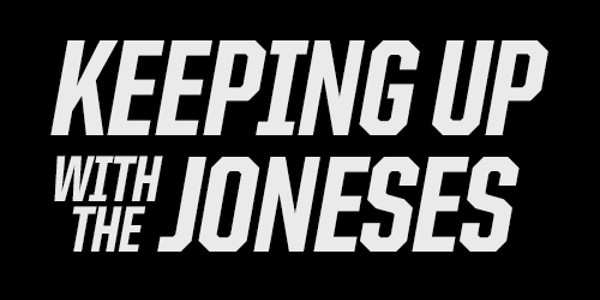Mark Twain said there’s no such thing as a new idea, just new combinations of old ideas.
Keeping Up with the Joneses is an old combination of old ideas. A suburban couple mired in middle-class predictability and mediocrity find out that their gorgeous, accomplished, and fascinating new neighbors, who seem genetically designed to make everybody else in the neighborhood look bad, are spies; get caught up in the proverbial web of intrigue; and discover that the world is much bigger than their cul-de-sac and that life can be more exciting than barbecues and ballgames. Yawn, right? But one of the nice things about movies is that a good cast can redeem an otherwise lazily conceived and executed tale, and Keeping Up with the Joneses kind of works thanks to the humor and charm of its four leads.
None of the characters are all that sharply drawn on paper, i.e., in dialogue or deed. The existential desperation of Jeff and Karen Gaffney (Zach Galifianakis and Isla Fisher), for example, is strictly canned. Jeff comes to life in Galifianakis’s native combination of sorrow and silliness. Galifianakis has the rheumy eyes of an inveterate pothead, which makes Jeff, a human resources officer whose specialty appears to be dispute resolution, look constantly like he’s about to cry—a pathetic soul who would heal himself by healing others if only he had a clue where to begin.
Karen, endowed with Isla Fisher’s intelligence and articulate volubility, clearly is too big in spirit for her life in the Atlanta suburbs. You get the feeling that she’s an obsessive storyteller by nature, always elaborating inwardly on the mundane details of her existence, worrying the supposed good life’s simplicity until it’s a mess of loose ends.
Gal Gadot plays spy number one, Natalie Jones, and her statuesque beauty is almost surreally incongruous with the suburban setting. She’s a palm tree in an English garden. The glint in her eye of feline disdain for the average and self-satisfied is just right, although it’s also pretty much the only note the script allows her to strike.
Jon Hamm always looks like he’s on the brink of bitter laughter as if he just can’t believe what a mess we’ve made of things, how bad we are at living up to our ideals. His disappointment and his sense of the absurd are perfect for spy number two, Tim Jones, who has seen perhaps too much of the world and begun to wonder, like the Gaffneys, whether the life he’s living is the right one. They also make him a perfect foil for Galifianakis. When Jeff does or says something impossibly stupid or inappropriate, as he’s wont to do, Tim keeps smiling and nodding, playing along, while his eyes go, “Seriously?” But the doubt in his eyes is self-doubt, too, and you get the feeling that if Tim spent enough time with Jeff, his sense of reality would be completely undermined.
If not for the chemistry between these four stars, Keeping Up with the Joneses would be another depressing exercise in Hollywood rehashing. The plot offers no surprises. Well, maybe one. But it’s not much of a surprise. The messages about the importance of remaining open to new experiences and about how managing the steadiness of day-to-day life requires “real” courage are hackneyed, in the first case, and pure crap, in the second. And the subliminal paranoia of the my-neighbors-are-spies! genre feels a little tired, a little too analog in this age of mass surveillance. But watching a bunch gifted actors with real comic timing play off of one another is fun, and if paint-by-numbers storytelling and unprocessed clichés don’t drive you crazy, you just might enjoy Keeping Up with the Joneses.


